(Registered under the Ministry of SME, Government of India for Research and Experimental Development on Natural Sciences and Engineering) |UDYAM-DL-06-0096855|
ISO 9001: 2015 Certification: Accredited by United Ackreditering Services Limited, United Kingdom |QMS/C26E/0923|
7-Day Online Hands-on Training
[Online Live Sessions along with Complete Recordings]
Computer-Aided Drug Designing (CADD)
Molecular Docking (Protein-Ligand Drug Molecule Interaction), Reverse Screening, Virtual Screening, and ADMET (Absorption, Distribution, Metabolism, Excretion, and Toxicity) Analysis
Software Packages: Autodock Vina, Pymol, Autodock MGL Tool, SPDBV
Date: 16 January 2026 - 22 January 2026
Timing: Morning Batch: 9:00 AM – 10:00 AM IST or Evening Batch: 9:00 PM – 10:00 PM IST
Speaker: Dr. Nikhil Aggarwal [Acad Head (CACR); Ph.D. (IIT Madras); M.Sc. (University of Delhi)]
Introduction
We are pleased to announce a 7-Day Online Hands-on Training program on Computer-Aided Drug Designing (utilizing free software tools)
-
We cordially invite you to deepen your knowledge in drug designing by enrolling in our comprehensive 7-Day Online FDP/Workshop (Hands-on-Training) program on Computer Aided Drug Design (CADD) (Hands-on-Training using Free Licence Software packages).
-
The main purpose of CADD is to speed up and rationalize the drug design process while reducing costs. The basis of all CADD methods is chemo-informatics, the application of data storage, handling, and retrieval methods to chemical structures, their properties, and biological activity. In literature, the best widely used CADD method is Molecular Docking simulations, whereby the 3D binding mode of a given ligand for a given biomolecular receptor (typically a protein structure) is predicted and scored for affinity. This is extremely useful for the structural analysis of target–drug molecular interactions where experimental structural information is absent. Docking has also become a popular tool for virtually screening hit compounds or, by reverse engineering, identifying the target.
-
This utilizes accessible and free software packages, enabling you to acquire practical skills essential for your research endeavors. Our curriculum is meticulously designed to help you publish high-quality research articles in a timely manner, ensuring that you can effectively disseminate your findings to the academic community. We encourage you to enrol today to elevate your skills and accelerate your research output in this vital field.
Click below for Registration: Deadline 9:00 pm, 15 January 2026
Active Participation of Researchers from Top 100 Universities













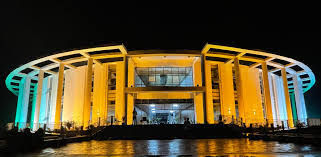


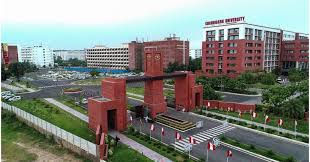




 |  |  |
|---|---|---|
 |  |  |
 |  |  |
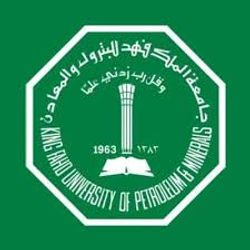 |  |  |
 |  |  |
 |  |  |
 |  |  |
 |  |  |
 |  |  |
 |  |  |
 |
Detailed Daywise Schedule
Day 1: 16 January 2026
-
Introduction to Drug Discovery CADD, Overview of the process of drug discovery
-
CADD Software Tools Installation
-
Understanding file formats (sdf, mol, pdb)
Day 2: 17 January 2026
Structure-based Drug Design (target-ligand docking):
-
Online Database Exploration (PubMed, PubChem, RCSB-PDB, etc.)
-
Introduction to Structure-based Drug Design and Process Layout of Docking
-
Thermodynamical criteria
-
Molecular Docking using Autodock vina (For docking of multiple ligands)
Day 3: 18 January 2026
-
Protein file preparation: removal of side moieties, repairing of polypeptide chains,
-
Docking studies: Protein structure input file preparation: removal of water, polar hydrogens, charge neutralization
-
Ligand file preparation: polar hydrogens, charge neutralization, labelling of aromatic carbons, and rotationable bonds
Day 4: 19 January 2026
-
Setting grid parameters and Docking parameters: Blind docking vs site-specific docking, saving grid dimensions, setting and executing the calculation. Docking analysis: Understanding how drugs function at the molecular level.
-
Based on binding energy, Hydrogen bond interactions, electrostatic interactions, hydrophobic interactions, etc.)
-
Binding analysis: Building protein-ligand complex and visualization (publication standard)
Day 5: 20 January 2026
-
Virtual Screening: A Computational technique used to search libraries of small molecules in order to identify those structures that are most likely to bind to a specific drug target.
-
Introduction to Virtual Screening and Related Input Parameters
-
Installation of software for Virtual Screening, calculations, and result analysis
Day 6: 21 January 2026
-
Reverse Screening: A Computational technique where an already known active compound is screened against a set of potential targets
-
Introduction to Reverse Screening and related input parameter, Installation of software for Reverse Screening, calculations, and result analysis
Day 7: 22 January 2026
-
ADMET Analysis: Computational analysis used to detect Absorption, Distribution, Metabolism, Excretion, and Toxicity behaviour of a drug
-
Introduction to ADMET analysis and related input parameters, Installation of software/web-based servers, calculations, and result analysis
Thank you to the Top 50 Faculty for attending our Training! Your commitment is Inspiring
-
Dr. Susantha Ganegamage, Assistant Professor at Lamar University, Texas, United States of America (USA) DFT-G
-
Dr. Binod R Giri, Senior Research Scientist at King Abdullah University of Science and Technology (KAUST), Saudi Arabia DFT-G
-
Dr. Shaza Massarani, Professor (Full) at King Saud University (KSU), Saudi Arabia DFT-G
-
Dr. Aziz Unnisa, Associate Professor at the University of Hail (UOH), Saudi Arabia DFT-G
-
Dr. Abdel-Baset H. Mekky, Professor (Associate), Qassim University (QU), Saudi Arabia DFT-G
-
Dr. Hela Ferjani, Professor (Associate), Imam Mohammad ibn Saud Islamic University (IMSU), Saudi Arabia DFT-G
-
Dr. Felipe Cordova Lozano Fundación, Professor, Universidad de las Américas-Puebla (UAP), México DFT-G
-
Dr. Murali Venkata Basavanga Unnamatla, Fulltime Professor, Universidad Autónoma del Estado de México - Inicio (UEE), México DFT-G
-
Dr. Jose Manuel Bravo-Arredondo, Professor (Associate), Autonomous University of Tlaxcala (UOT), Mexico DFT-G
-
Dr. Syed Shaheen Shah, Assistant Professor, Kyoto University (KU), Japan DFT-G
-
Dr.Elhassane Mohamed Abdssalam Anouar, Associate Professor, Prince Sattam bin Abdulaziz University (PSAU), Saudi Arabia DFT-G
-
Prof. (Dr.) Prashant Kharkar, Professor, Institute of Chemical Technology (ICT), Mumbai, Maharashtra, India CADD
-
Prof. (Dr.) Ozair Alam, Professor, Jamia Hamdard University (JHU), New Delhi, India CADD
-
Dr. Abha Sharma, Associate Professor, NIPER-Raebareli, UP, India CADD.
-
Mohammad Irfan Qureshi, Associate Professor, Jamia Millia Islamia, New Delhi, India CADD.
-
Ravindra Phatake, Assistant Professor, CSIR-Indian Institute of Integrative Medicine, Jammu CADD.
-
Syed Shariq Naeem, Assistant Professor, Aligarh Muslim University, Uttar Pradesh, India CADD.
-
Hmunshel Jasha, Assistant Professor, CSIR-Indian Institute of Integrative Medicine, Jammu CADD.
-
Dalapathi Gugulothu, Assistant Professor, Delhi Pharmaceutical Sciences and Research University, Delhi, India, CADD.
-
Dr. Sahil Kumar, Assistant Professor, Delhi Pharmaceutical Sciences and Research University, Delhi, India, CADD.
-
Dr. Reyaz Hassan, Assistant Professor, University of Kashmir, India CADD
-
Madhu Gupta, Assistant Professor, Delhi Pharmaceutical Sciences and Research University, Delhi, India CADD
-
Dr Neelima Dhingra, Assistant Professor, University Institute of Pharmaceutical Sciences, Panjab University, Chandigarh CADD
-
Raman Sureshkumar, Professor, JSS College of Pharmacy, Ooty, TAMILNADU, INDIA CADD
-
VADIVELAN R, Professor, JSS College of Pharmacy, Ooty, TAMILNADU, INDIA CADD
-
Dr. K. Praveen Kumar, Professor, Delhi Pharmaceutical Sciences and Research University, Delhi, India CADD
-
NAGARAJAN JSK, Associate Professor, JSS College of Pharmacy, Ooty, TAMILNADU, INDIA CADD
-
Prof. (Dr.) Amartya Sengupta, Professor, Indian Institute of Technology (IIT) Delhi, Delhi, India DFT-G
-
Prof. (Dr.) Arindam Sarkar, Professor, Indian Institute of Technology (IIT) Bombay, Maharashtra, India RRD
-
Prof. (Dr.) Rajesh Prasad, Professor, Indian Institute of Technology (IIT) Delhi, Delhi, India RRD
-
Prof. (Dr.) Subrato Bhattacharya, Professor, Banaras Hindu University (BHU), Uttar Pradesh, India DFT-G
-
Prof. (Dr.) Vinod Kumar Kannaujiya, Professor, Banaras Hindu University (BHU), Uttar Pradesh, India DFT-G
-
Prof. (Dr.) Krishna Kumar Singh, Professor, Birla Institute of Technology and Science (BITS) Pilani, Dubai, United Arab Emirates DFT-M
-
Prof. (Dr.) Bivas Dam, Professor, Jadavpur University (JU), West Bengal, India RRD
-
Prof. (Dr.) Satyajit Banerjee, Professor, Indian Institute of Technology (IIT) Kanpur, India DFT-M
-
Dr. Sandeep Pokharia, Professor, Banaras Hindu University (BHU), Uttar Pradesh, India DFT-M
-
Dr. Abhijeet L. Sangle, Assistant Professor, Indian Institute of Technology (IIT) Bombay, Maharashtra, India RRD, DFT-M
-
Dr. Bani Mahanti, Assistant Professor, Banaras Hindu University (BHU), Uttar Pradesh, India DFT-G
-
Dr. D N V V Konda Lutukurthi, Assistant Professor, Indian Institute of Technology (IIT-ISM) Dhanbad, Jharkhand, India DFT-G, DFT-M
-
Dr. Divya Kushwaha, Assistant Professor, Banaras Hindu University (BHU), Uttar Pradesh, India DFT-G
-
Dr. Kodanda Ram Mangipudi, Assistant Professor, Indian Institute of Technology (IIT) Bhubaneswar, Odisha, India RRD
-
Dr. R Lalneihpuii, Assistant Professor, Banaras Hindu University (BHU), Uttar Pradesh, India DFT-G
-
Dr. Sandeep Patel, Assistant Professor, Banaras Hindu University (BHU), Uttar Pradesh, India DFT-G
-
Dr. Santanu Mandal, Assistant Professor, Indian Institute of Technology (IIT) Bhubaneswar, Odisha, India DFT-M, DFT-M_A
-
Dr. Sonal Shrivastava, Assistant Professor, Indian Institute of Technology (IIT) Patna, Bihar, India RRD
-
Dr. Subhas Samanta, Assistant Professor, Indian Institute of Technology (IIT) Jammu, Jammu and Kashmir DFT-G
-
Dr. Sumit Kamal, Assistant Professor, Indian Institute of Technology (IIT) Jodhpur, Rajasthan, India DFT-G, DFT-M
-
Dr. Supriyo Ghosh, Assistant Professor, Indian Institute of Technology (IIT) Roorkee, Uttarakhand, India DFT-M
-
Dr. Veeramani Chidambaranathan, Assistant Professor, Indian Institute of Technology (IIT) Roorkee, Uttarakhand, India DFT-M
-
Dr. Venkatadivakar Botcha, Assistant Professor, BioSense Institute, University of Novi Sad, Novi Sad, Serbia DFT-M
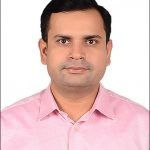
Assistant Professor, Delhi Pharmaceutical Sciences and Research University, Delhi, India

Professor, JSS College of Pharmacy


Assistant Professor, University Institute of Pharmaceutical Sciences, Panjab University, Chandigarh.

Associate Professor, NIPER-Raebareli, UP, India

Assistant Professor, Delhi Pharmaceutical Sciences and Research University, Delhi, India

Associate Professor, Jamia Millia Islamia, New Delhi, India

Assistant Professor, CSIR-Indian Institute of Integrative Medicine, Jammu
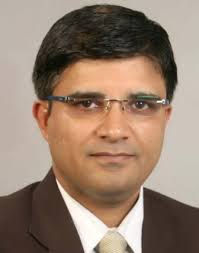
Professor, Institute of Chemical Technology (ICT), Mumbai, Maharashtra

Assistant Professor, CSIR-Indian Institute of Integrative Medicine, Jammu

Professor, Jamia Hamdard, New Delhi, India

University of Kashmir
Participants List: Updated 6:00 pm, 16th January 2026
No | Order number | First Name | Last Name | Academic Status | Present University/ Industry enrolled | State, Country |
|---|---|---|---|---|---|---|
1 | 2ZQC-1NBN-MSL | Hareeshbabu | E | Professor | MGM College of Pharmaceutical Sciences, Malappuram | Kerala, India |
2 | 2ZT0-2DHZ-W5T | Shiny | George | Professor | Hindustan College of Pharmacy | Kerala |
3 | 2ZT0-D9QZ-CBM | BALASEKAR | PREMKUMAR | Professor | K.K.COLLEGE OF PHARMACY (AFFILIATED TO THE TAMILNADU Dr. M. G. R. MEDICAL UNIVERSITY) | TAMIL NADU |
4 | 2ZT1-D4SQ-CXK | Dr. Sundeep | Kadasi | Professor | D.Y. Patil College of Pharmacy (D.Y. Patil Education society - Deemed to be University), Kolhapur | Maharashtra, India |
5 | 2ZT5-VG4S-5KC | GAYATRI | PILLI | Professor | NRI COLLEGE OF PHARMACY | India |
6 | 2ZTD-MSZ7-NPJ | B | Anna Tanuja Safala | Associate Professor | BVRIT HYDERABAD College of Engineering for Women | India |
7 | 2ZT9-QTQZ-LSH | P. N. | Remya | Associate Professor | SRM College of Pharmacy, SRM Institute of Science and Technology | India |
8 | 2ZTD-04GM-W0D | Dr. Arya | K R | Associate Professor | Chitkara College of Pharmacy, Chitkara University | Punjab, India |
9 | 2ZTD-1FF8-2M3 | Reena Rani | Nayak | Associate Professor | Nityanand College of Pharmacy | Odisha |
10 | 2ZT4-Q4B5-NXF | NEETHU | VARGHESE | Associate Professor | AL SHIFA COLLEGE OF PHARMACY | KERALA, INDIA |
11 | 2ZT0-5F1T-5M9 | Subin Mary | Zachariah | Associate Professor | Amrita School of Pharmacy | India |
12 | 2ZST-W93Q-LHZ | Shashikala | Metri | Associate Professor | Gokaraju Rangaraju College of Pharmacy, Bachupally, Hyderabad | India |
13 | 2ZSC-DSPG-DHD | Dr. Dimple Sethi | Chopra | Associate Professor | Department of Pharmaceutical Sciences & Drug Research, Punjabi University, Patiala | India |
14 | 2ZTF-39QW-7L0 | Kalyani | Shelar | Assistant Professor | School of Pharmaceutical Sciences, JSPM University, Pune | India |
15 | 2ZTF-R9X3-TS6 | Ayda | Cherian | Assistant Professor | College of Pharmaceutical Sciences, Government Medical College, Kottayam | Kerala |
16 | 2ZR5-G6CQ-J8S | Prashant | Gupta | Assistant Professor | All India Institute of Ayurveda | India |
17 | 2ZRG-G7DH-5M1 | Nutakki Tulasi Uma | Rani | Assistant Professor | Hindu College of Pharmacy | Andhra Pradesh |
18 | 2ZS6-8V9T-PVL | Rajani | Mathur | Assistant Professor | Delhi Pharmaceutical Sciences and Research University | Delhi |
19 | 2ZS6-LLVL-WBV | Pooja | Gujar | Assistant Professor | Nagpur College of Pharmacy, Wanadongri | India |
20 | 2ZSB-CHK6-3CX | Niharika | Pedamallu` | Assistant Professor | Department of Pharmaceutical Sciences, Vignan's Foundation for Science, Technology and Research | Andhra Pradesh, India |
21 | 2ZQ8-F14Z-X4R | GEETA | SAHU | Faculty | SIES School of Pharmaceutical Science | India |
22 | 2ZRG-P97L-S0K | Dr. Sangeeta | Guruvelli | Industry Expert | Leiutis Pharmaceuticals | Telangana |
23 | 2ZRJ-WLRG-GH4 | Chandra | Sekhar | Industry Expert | Leiutis Pharmaceuticals | Telangana |
24 | 2ZT3-Z6HD-SRB | JAYALAKSHMI | J | Research Scholar | AMRITA SCHOOL OF PHARMACY, AMRITA VISHWA VIDYA PEETHAM UNIVERSITY | KERALA, INDIA |
25 | 2ZTD-XPXN-GVH | SHEENA | MATHEW | Research Scholar | AMRITA SCHOOL OF PHARMACY | India |
26 | 2ZR1-N8MJ-575 | Katyayani | Joshi | Research Scholar | CSIR-Indian Institute of Toxicology Research | Uttar Pradesh |
27 | 2ZSB-XRZC-6BP | Monika | Research Scholar | ACPTE, Mastuana Sahib | India | |
28 | 2ZRF-W4Z1-T4P | SAURAV | SUMAN | Research Scholar | CENTRAL UNIVERSITY OF SOUTH BIHAR, GAYA | Bihar, India |
29 | 2ZT8-PDW5-75H | Apexaben | Shah | Research Scholar | Gujarat Technological University | Gujarat, India |
30 | 2ZTF-DCV5-48H | Priyanka | Wanjul | Research Scholar | JSPM University, Wagholi, Pune | Maharashtra, India |
31 | 2ZTF-RRMN-FMG | Anuradha | Khadke | Research Scholar | JSPM University | Maharashtra, Pune |
32 | 2ZSW-NNZ3-0V4 | Pooja | Rawal | Research Scholar | Kumaun University, Nainital | Uttarakhand, India |
33 | 2ZTF-1QQK-1GM | Apeksha Bhimrao | Korde | Research Scholar | School of Pharmaceutical Sciences, Faculty of Health Sciences, JSPM University | Maharashtra |
34 | 2ZT9-PSV6-Q2D | Samarpan | Sarangi | Research Scholar | SRM College of Pharmacy, SRM Institute of Science and Technology | India |
35 | 2ZTD-F147-SG5 | MARELLA | DEVENDRA | Research Scholar | University College of Pharmaceutical Sciences (UCPSC) | Telangana |
36 | 2ZRB-JQ2F-94M | Dr. Nitesh | Prakash | Postgraduate | Jamia Hamdard | New Delhi, India |
37 | 2ZSD-0D0M-6W2 | Prakhar | Pandey | Postgraduate | Chhatrapati Shahu Ji Maharaj University, Kanpur, Uttar Pradesh | India |
38 | 2ZT5-NBBD-8HZ | Minakshi | Patel | Postgraduate | Chhatrapati Shahu Ji Maharaj University, kanpur | Uttar Pradesh, india |
39 | 2ZRB-JSNQ-277 | Srishti | Seshan | Postgraduate | Jamia Hamdard | New Delhi, India |
40 | 2ZS8-80KC-64V | Ankit | Verma | Postgraduate | Jamia Hamdard | India |
41 | 2ZRG-K3LQ-RK8 | Komal | Suthar | Postgraduate | Pandit Deendayal Energy University | Gujarat, India |
42 | 2ZSL-QBPT-N1Q | Meraz | Ahmad | Postgraduate | School of Pharmaceutical Sciences, Chhatrapati Shahuji Maharaj University | Uttar Pradesh, India |
43 | 2ZT6-26WN-TPW | Akanksha | Pal | Postgraduate | School of Pharmaceutical Sciences, Chhatrapati Shahuji Maharaj University | Uttar Pradesh, India |
44 | 2ZT7-WFB7-XQN | Shalu | Shukla | Postgraduate | Chhatrapati Shahu Ji Maharaj University | Uttar Pradesh, India |
45 | 2ZT9-95K2-3K9 | Vaishnavi | Singh | Postgraduate | Chhatrapati Shahu Ji Maharaj University | Uttar Pradesh, India |
46 | 2ZTD-9V16-9DN | Neha | Kushwaha | Postgraduate | Chhatrapati Shahu Ji Maharaj University | Utta Pradesh |
47 | 2ZTD-G9CN-QBG | ABHISHEK KUMAR | VISHWAKARMA | Postgraduate | Chhatrapati Shahu Ji Maharaj University | UTTAR PRADESH |
48 | 2ZTF-FVL6-H39 | Supriya | Yadav | Postgraduate | Chhatrapati Shahu Ji Maharaj University | Uttar Pradesh, India |
49 | 2ZTF-G45X-060 | Pragati | Kushwaha | Postgraduate | Chhatrapati Shahu Ji Maharaj University | Uttar Pradesh, India |
50 | 2ZSR-3N74-JVM | Chandrajyoti | Kushwaha | Postgraduate | Chhatrapati Shahu Ji Maharaj University | Kanpur |
51 | 2ZT9-7J24-7TC | Priyanka | Das | Postgraduate | Dibrugarh University, Department of Pharmaceutical Sciences | Assam, India |
52 | 2ZTF-6FR4-NDB | Ashish | Singh | Postgraduate | School of Pharmaceutical Sciences, CSJMU, Kanpur | Uttar Pradesh, India |
53 | 2ZTF-785T-ZB6 | Daksh | Verma | Postgraduate | School of Pharmaceutical Sciences, CSJMU | Uttar Pradesh, India |
54 | 2ZS8-KGQ0-N3X | Muskaan | Thakur | Undergraduate | Institute of Chemical Technology | Maharashtra, India |
55 | 2ZT5-J4KN-3J7 | Dipak | Magar | Meghmani LLP | India | |
56 | 2ZTF-XXHN-HW8 | Prashant | Kumar | Postgraduate | Suresh Gyan Vihar University | Rajasthan, India |
57 | 2ZTG-4RK7-0L9 | Dr.Kandikonda | Lavanya | Associate Professor | Gouthami institute of technology and management for women, Proddatur | India |
58 | 2ZTG-G9NK-3X0 | Swarnali | Sonowal | Research Scholar | Department of Pharmaceutical Sciences, DIBRUGARH UNIVERSITY | Assam,India |
59 | 2ZTJ-2VD1-5KM | Bincy | Raj | Professor | East West cop | Karnataka |
60 | 2ZTJ-NQGL-L0C | Dr. Prasanna Latha | Komaravalli | Industry Expert | Leiutis Pharmaceuticals | Telangana, India |
61 | 2ZTJ-PD05-VGT | Dr. Amrita | Chatterjee | Industry Expert | Leiutis Pharmaceuticals | Telangana, India |
62 | 2ZTK-8G1D-P3H | Debalina | Dutta | Postgraduate | Amrita School of Pharmacy, Amrita Vishwa Vidhyapeethnam Coimbatore | India |
63 | 2ZTK-8TZ0-6NL | Nistha | Jain | Postgraduate | Amrita School of Pharmacy, Amrita Vishwa Vidhyapeethnam Coimbatore | India |
Speaker: Dr. Nikhil Aggarwal
Currently, our organisation is under the leadership of Dr. Nikhil Aggarwal, who brings a wealth of knowledge and experience in the computational investigation of molecules, utilising various Density Functional Theory (DFT) approaches. Dr. Aggarwal earned his Ph.D. in Physical Chemistry from the prestigious Department of Chemistry at the Indian Institute of Technology (IIT) Madras in 2017, and he also holds both an M.Sc. and B.Sc. from the University of Delhi. With an impressive portfolio that includes five publications in highly respected international journals, such as those published by the American Chemical Society and Wiley, as well as a book published by Lambert Publishing House in Germany, Dr. Aggarwal has made significant contributions to the field. Furthermore, he was an active participant in the International Conference on Modern Computational Methodologies and Challenges held at the University of Washington, USA, in 2016.
He is actively committed to promoting computational science through online workshops and hands-on training in academic institutions and research industries. We take pride in being the first to offer hands-on training, both online and onsite, in quantum chemical calculations using Density Functional Theory (DFT) approaches. We are proud to announce that in just 4 years, he has successfully trained over 5,000 graduate students, research scholars, professors, and industry experts from 70 countries, including the US, UK, Saudi Arabia, Mexico, Brazil, Malaysia, Kuwait, Germany, Peru, South Korea, India, Finland, Turkey, Iraq, Australia, Philippines, Spain, Jordan, Chile, Taiwan, South Africa, Pakistan, Nepal, Bangladesh, Nigeria, Morocco, Egypt, Sri Lanka, and Algeria, Singapore, Columbia, Sweden, Botswana, Belgium, Canada. His efforts have garnered a rating of 4.76 out of 5.00 from more than 700 international and national participants in our previous workshops. This achievement reflects his commitment to providing high-quality training and education in computational chemistry.
We look forward to continuing our mission of empowering individuals across the globe with valuable skills and knowledge.
Salient Features
-
The Hands-on-Training Program is planned for Faculty, Post-docs, Research Scholars, postgraduate, and undergraduate students.
-
The training session is well-designed to meet the needs of Researchers Working on Research Articles.
-
The links to download the required free software for training will be provided. We understand the Academic schedules of participants, so complete lecture recordings will be given to all participants.
-
Hands-on Training sessions will be held in an online mode via Zoom
-
Lecture Mode: English
-
e-certificates will be provided to all registered participants (subject to a minimum 4/10 attendance)
-
Training will be provided on the Windows Operating system
-
Programming and coding knowledge are not required for the hands-on training mentioned above.
-
On successful Registration, an automated email will be sent to confirm your participation.






